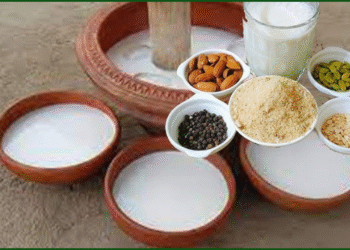A new wave of research is shining a spotlight on apricots, the vibrant orange fruit long cherished for its sweet-tangy flavor. Beyond their delicious taste, apricots are emerging as a nutritional powerhouse, with studies highlighting their potential to regulate blood pressure and support liver health.
A Natural Ally for Heart Health
High blood pressure, or hypertension, affects millions worldwide, increasing the risk of heart disease and stroke. Recent studies suggest that apricots may offer a natural way to keep blood pressure in check. Packed with potassium, a mineral known for balancing sodium levels in the body, apricots help relax blood vessels and promote healthy blood flow.
“Potassium-rich foods like apricots can play a significant role in maintaining cardiovascular health,” says Dr. Elena Martinez, a nutritionist based in San Diego. “Incorporating them into your diet could be a simple yet effective step toward better blood pressure management.”
A single apricot provides about 259 milligrams of potassium, roughly 6% of the daily recommended intake for adults. Whether eaten fresh, dried, or blended into smoothies, apricots offer a convenient way to boost potassium levels without relying on supplements.
Safeguarding the Liver
The liver, the body’s detox powerhouse, also stands to benefit from apricots. Rich in antioxidants like vitamin C and beta-carotene, apricots help combat oxidative stress, which can damage liver cells over time. Emerging research indicates that these antioxidants may reduce inflammation and protect the liver from fatty liver disease, a growing concern linked to modern diets.
“Apricots contain compounds that support the liver’s ability to process toxins and fats,” explains Dr. Samuel Chen, a hepatologist in Chicago. “Their natural fiber also aids digestion, which indirectly supports liver function by reducing the organ’s workload.”
Dried apricots, in particular, are a concentrated source of these protective nutrients, making them a practical choice for year-round consumption. However, experts advise choosing unsweetened varieties to avoid excess sugar.
Adding Apricots to Your Diet
Incorporating apricots into daily meals is easier than ever. Here are a few creative ideas to enjoy this golden fruit:
- Breakfast Boost: Add chopped fresh apricots to oatmeal or yogurt for a nutrient-packed start to the day.
- Savory Twist: Toss dried apricots into salads or grain bowls for a sweet-savory contrast.
- Healthy Snacking: Pair a handful of dried apricots with nuts for a balanced, on-the-go snack.
- Dessert Delight: Blend apricots into a smoothie or bake them into a wholesome fruit crisp.
When selecting apricots, opt for organic varieties when possible to minimize pesticide exposure. Fresh apricots are best enjoyed during their peak season (late spring to early summer), while dried apricots offer a shelf-stable alternative.
A Fruit with a Bright Future
As researchers continue to explore the health benefits of apricots, this humble fruit is earning its place as a dietary staple. With their ability to support heart and liver health, apricots are more than just a tasty treat—they’re a small but mighty step toward a healthier lifestyle.
So, the next time you’re at the market, consider grabbing a handful of apricots. Your heart and liver might just thank you.
Disclaimer: Always consult a healthcare professional before making significant dietary changes, especially if you have pre-existing health conditions.


















































